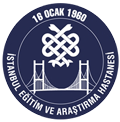ABSTRACT
The knowledge of patients about their illness and participation to the treatment increase the medical success. Patients and their families should know the illness, precipitating factors, treatment methods, and share the responsibility; so that hospital admissions, treatment costs, off-school and off-work days decrease. We wanted to fınd out the knowledge of 100 patients about the ir diseases. For this purpose 20 patients with diabetes mellitus, chronic obstructive pulmonary disease, chronic renal insuffıciency and gastrointestinal system bleeding were randamly chosen. They were asked questions about their illness. 55 ofthem were men, 45 were women. The average age was 56 and 54.3 respectively. The educational levels were as follows: 1 graduated from university, 6 high school, 8 secondary school, 41 primary school, 7 were able to read and write, 36 of them illiterate. 32 % of our patients didn't know what their illness was. 36 % didn't know which organ was sick 59 % were unaware about these organ's functions. 71 % did not know their daily drugs. 68 % did not know how long the treatment would last. 65 % had no knowledge how to take care of themselves. 67 % did not obey medical advices. 72 % of them had not received medical knowledge until that time but 96 % wanted to know about their diseases and treatment. As conclusion our patients's knowledge about their illness and therapy were inadequate so an education program is needed to get a better physical and psychosocial situation.



